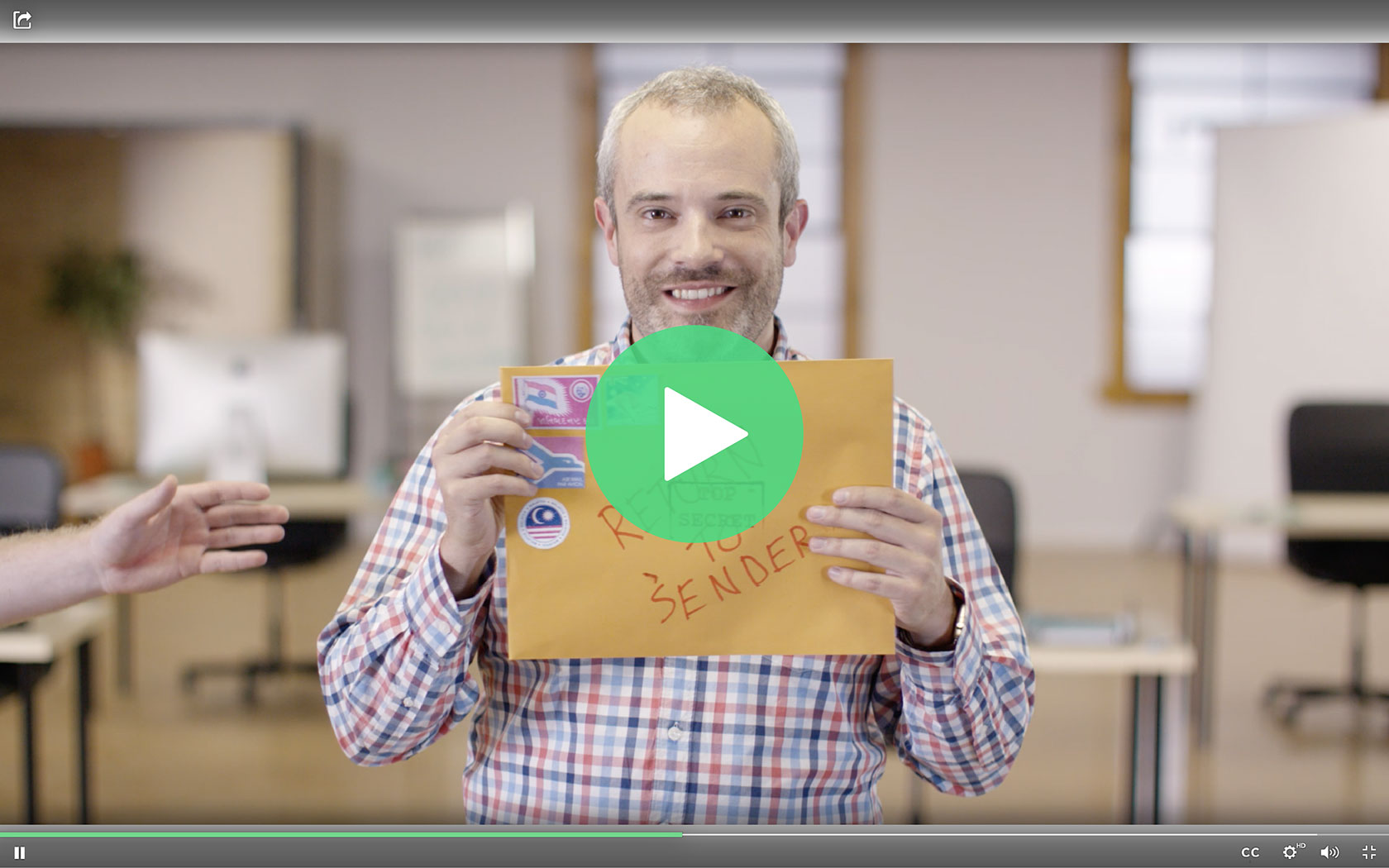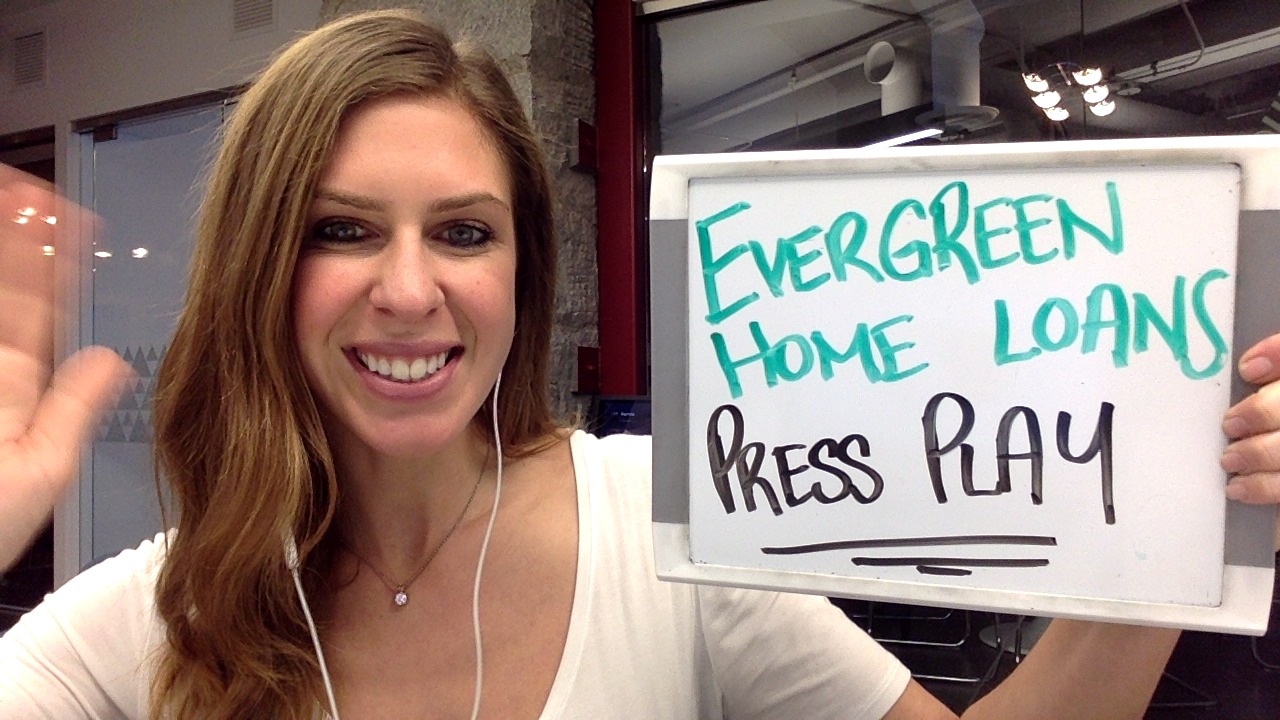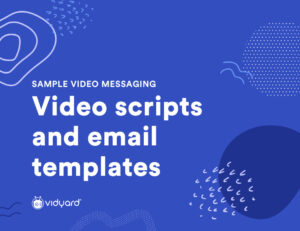In almost every scenario, you’d rather your salespeople meet prospects in-person. People are more honest, agreeable, and willing to do deals face to face. But how often does that happen nowadays?
Many sales organizations hire sales reps who are great in-person and yet most of them spend as much as 36% of their time hunched over email or on the phone. And while these tools help them close deals remotely, they also make the act of buying less personal. They make ghosting a little more acceptable, no-shows tantalizingly easy, and the whole process of selling harder.
The fix? Video for sales. And not just for product demos, but videos at every stage of the sales cycle from outreach through to closed-won and handed off. We’re talking about one-way video, known as asynchronous video, which brings back that high-fidelity face-to-face connection and all the mutual accountability that comes with in-person meetings.
Asynchronous video is nothing short of a sales secret weapon and this article will explain how to use it to crush your quota.
Contents1.The Benefits of Video for Sales2.Where to Use Video Throughout Your Sales Cycle2.1Grab Attention2.2Breathe Life into Your Value Prop2.3Move Deals Towards Close3.The 4 Types of Sales Videos3.1Webcam Video (a.k.a. Selfie Video)3.2Screen Share Video3.3Marketing Personalized Video3.4Video Playlist4.Video Selling Best Practices5.Why Sales Teams Need a Video Strategy6.Selling Your Team on Video7.Get Up and Running with Video8.The Key to Getting Started is Starting
The Benefits of Video for Sales
Video makes people’s ears perk up. Almost all of us feel compelled to click a play button when we see it, and that gives you the power to compel people to watch your video, even when they wouldn’t read what you wrote.

If you clicked the button above, you know what I mean. Really, there are five good reasons you should be using video in your cycles.
Sales videos:
Break through inboxes and can earn 3x more responses.
Build relationships at a distance. Video makes people feel like they know you, which makes them more emotionally committed and responsive.
Explain complex topics simply. Video allows you to show, not just tell, and explain more thoroughly.
Save time. Higher response rates mean more time spent actually selling.
Accelerate deal cycles. Some companies cut their deal cycles in half with video.
That’s probably why HubSpot has called video prospecting one of the 10 skills every sales development rep needs to master. (And they’re not the only ones who stand to benefit.)
How HubSpot Uses Video for Sales
HubSpot uses video across their entire global sales organization spread across five continents. With video, they’ve achieved 4x booked meetings. Hear from three people in HubSpot’s sales organization on how they use video, how they rolled it out to such a large team, and why they think it’s so important to sales success.
Ready to try? The only question is where you should begin.
Connect, Convert, and Close More Deals
Easily create and share 1-to-1 videos.
Where to Use Video Throughout Your Sales Cycle
Not sure when to use video in the sales process? In short, video is useful anywhere in your sales cycle where you’d like higher conversions. It excels at the top of the funnel, where you’re trying to crack the attention barrier, but also in the middle and bottom, where you’re trying to dislodge sticky deals and guide them to close.
Grab Attention
Subject lines that contain “video” are 8x more likely to be opened, and emails that contain a video are highly likely to get a click. That’s even more true if they include motion, as with a GIF thumbnail.
Video prospecting works just as well in LinkedIn InMails and Twitter DMs as email. In addition to driving new leads, they’re also effective for cracking into target accounts in account-based marketing programs. Wherever attention is finite and standing out is paramount, videos help.
Learn From the Pros
This selfie-style outreach video from Commercial Account Executive Alana Couzelis is a great example of video prospecting.

Breathe Life into Your Value Prop
When you have someone’s attention, you can explain your points much more clearly with video than you can a novel-length email or a PDF that’s dense with screenshots. Video is good for walking through a deck or explaining the reason you reached out.
Vidyard’s own sales reps like to walk through the prospect’s LinkedIn page or website to point out why they’re such a good fit.
Learn From the Pros
Showing the prospect their own company’s page provides a compelling reason for them to click. In this short—yet effective—video, a sales rep from League shares an introduction, the reason for the video, a quick overview of a case study, and a call-to-action. All in less than 90 seconds!

Move Deals Towards Close
Maintain deal momentum with video reminders. If you use video throughout your sales process, prospects grow increasingly accustomed to your face. Many Vidyard sales reps report that customers say they feel like they already know each other by the time they meet, and that’s a big competitive advantage. It makes people feel more accountable to you.
If a deal gets tied up over technicalities or stakeholders drag their feet, you can unstick things with targeted micro-demos. They’re perfect for prospects who feel hesitant about committing to a full demo, or for explaining the value proposition in terms that matter to a particular business unit. End the video with a link to your calendar.
Video continues to be useful even when the deal is won. It’s great for contract walkthroughs, handoffs to the customer service team, and support. Wherever things need explaining, video makes it simple.
Learn From the Pros
In this quick video, Customer Outcomes Manager Jacob Fernandes reminds his contact about an upcoming meeting in a personal way, making a no-show far less likely.

The 4 Types of Sales Videos
Most sales videos fall into four categories. Each has different strengths, and each serves a slightly different purpose.
Webcam Video (a.k.a. Selfie Video)
Videos recorded with a webcam, often known as selfie videos, are the workhorse of video in sales. They offer a nearly face-to-face level of personal connection. Use them to build relationships and introduce prospects to your office and your team—a technical sales rep, a customer support rep, or even other customers.
Learn From the Pros
In this outreach video, Vidyard sales rep Diana Huynh uses props to help identify (and empathize) with her prospect’s pain points. This creative approach helps them connect with her.

Screen Share Video
Screen share videos are used for explaining complex topics simply in a digestible format. They’re great for showing, not telling, prospects why you called. Tour their site or app, your site or app, their LinkedIn page, an article, or a diagram.
Pro Tip: Record a selfie plus a screen share to get the best of both formats.
Learn From the Pros
In this screen recording video, Vidyard Technical Account Manager Chris Broughton explains how to change a splash screen. The bubble with his face in the corner makes even a straightforward video like this more personal.

Marketing Personalized Video
Marketing personalized videos are made by the marketing team, but sales reps can insert personalized elements like a name or job title based on the recipient. They’re great for when you want a mass campaign but also a personal feel.
Learn From the Pros
This video was created by Vidyard’s marketing team for sales reps (and everyone else in the company) to send out whenever they receive a prospecting message from a rep at another company. The video uses real-time personalization, so the sender can customize it to the recipient while composing a reply. The example below has been personalized for “John Simpson.”

Video Playlist
Playlists let sales reps tack a personal recording onto a pre-recorded video. That way, they get all the benefits of a thorough explanation and high-production value without recreating it each time.
Learn From the Pros
This playlist includes different versions of Vidyard’s 3-minute demo video for different use cases: Marketing, sales, and internal communications. Viewers can watch all of them or skip ahead to the individual video that interests them most.

Video Selling Best Practices
You don’t need a video production degree to make videos that sell. But, it does help to listen to people who do have one, because small adjustments make big differences in how appealing and easy your videos are to watch. Consider your:
Lighting: Position yourself facing a window with daylight, if possible.
Sound: Use the microphone on your headphones and record in quiet spaces.
Location: Aim to use a backdrop that agrees with your client. If you’re selling to large enterprises, large airy offices or cityscapes. If you’re selling to startups, brick walls or open office floors.
Above all, be interesting. That starts with your message. No amount of video dressing can mask an irrelevant message that’s not worth responding to. Tailor your:
Thumbnail: Does your video thumbnail make people want to click? Try using motion, with a GIF.
Message: Why them? Why you? Why now? What’s the benefit? Start by explaining why they, in particular, should care, then explain part of how it works. But don’t give away everything. The point is for them to be interested enough to respond.

Sales Video Scripts and Email Templates
 Use proven formulas to create sales videos that get results. Get video scripts and email templates that work.
Use proven formulas to create sales videos that get results. Get video scripts and email templates that work.
Download Now
Why Sales Teams Need a Video Strategy
Video works best when the entire sales team is using it. This feeds a virtuous cycle of experimentation, feedback, and sharing.
Someone discovers that sending late-night videos to chief legal officers gets great responses? Everyone should try it. Someone finds out that ending with a cliffhanger earns added interest? Make it a best practice.
Analytics can be a huge help. Reps may not always know whether the results they’re getting are good or bad, and a sales leader with access to everyone’s videos can discover pockets of excellence.
For instance, if one salesperson with average response rates closes an unusual number of deals using video, that’s worth knowing about. They should share their secrets with the rest of the team.
Sales managers should look at:
Email opens
Email responses
Meeting book rates
Win rates
View time percentage
Also consider how you can reduce your team’s effort. A good video platform can pass data to your customer relationship management (CRM) system to alert reps when buyers watch, trigger workflows when viewers don’t complete a video, or score leads based on view time percentage.
Selling Your Team on Video
Not every sales team has video in its DNA. Some sales reps don’t initially understand its potential, or don’t want to break their ingrained habits to try something new. But the same way you sell a deal, you can sell them on video’s productivity gains.
There are two ways video typically spreads:
Bottom Up: A rogue sales rep begins to exceed their quota, and part of the story is that they’re using video. The numbers say it all, and other reps are quick to copy.
Top Down: Leadership understands video’s potential and implements a video platform. In this instance, it’s a good idea to certify salespeople on the use of video, so they’re armed with enough guidance to see initial success, to get excited, and for the process to catch on. Sales leaders can use promotions or spiffs to encourage video’s use, and even make video mastery a prerequisite for promotion.
If you find yourself pitching someone in the organization on the benefits of video, do it based on the organization’s needs.
Do salespeople need more top of funnel interest? Video in email can offer 3x higher response rates than email alone. Does the organization suffer from a complex product or sales cycle? Video helps establish and sustain relationships needed to carry out a year-long sales cycle with many stakeholders. Does the organization want to do more expansion deals? Video’s great there too.
Get Up and Running with Video
Don’t simply arm sales reps with video tools. Create a video rollout plan that ensures that the political capital you’ve spent bringing video into the organization doesn’t go to waste.
Ask yourself:
What software do you need? You’ll need a video platform if you want reps to share videos, create playlists, personalize content, see analytics, and pass all of that data to the CRM.
Who needs to be trained? Sales managers as well as sales reps. The gold standard is a certification program.
Who needs to be involved to acquire and launch a new software? Probably marketing and possibly IT.
Where do you start? Make it simple for everyone by identifying the initial use-cases. Pick ones that play to your organization or team’s strengths. Start small, look for success, then expand from there.
How many videos per week? Set expectations for the volume of content that sales reps are expected to make and send.
How is it going? Create channels for feedback so that winning leads to more wins. If you share closed/won notes or other deal won notifications with the team, consider encouraging reps to note when they used video so that others see it.
The Key to Getting Started is Starting
Video can help you hit your quota, if you let it. When you get responses from prospects like, “Wow, never seen that before,” and “Honestly this is the best cold email I’ve ever gotten,” video becomes habit. The benefits trickle throughout the sales team and raise everyone’s numbers.
And that’s how you build a video-first sales culture that consistently crushes quotas quarter after quarter after quarter…
Connect, Convert, and Close More Deals
Easily create and share 1-to-1 videos.
The post A Quick Guide to Crushing Quotas with Video for Sales appeared first on Vidyard.
Read more: vidyard.com









